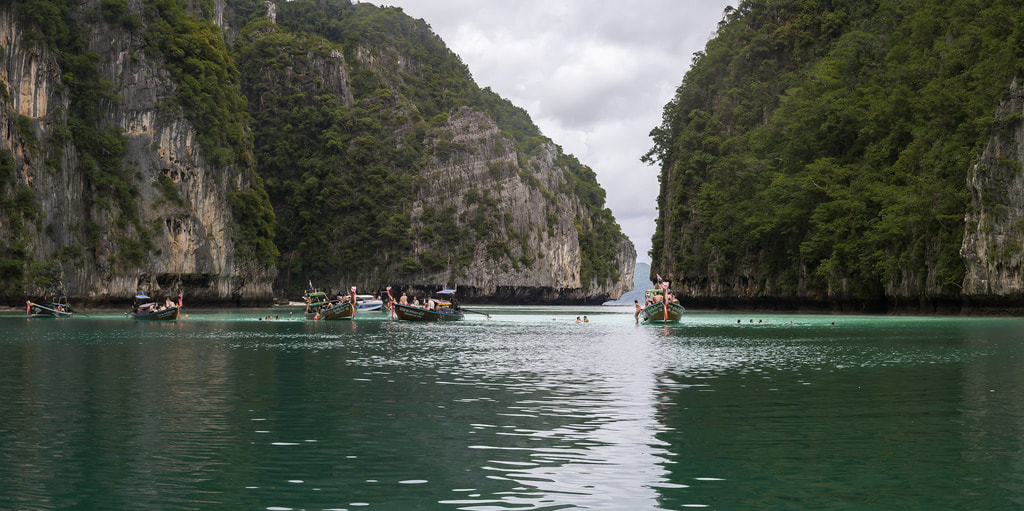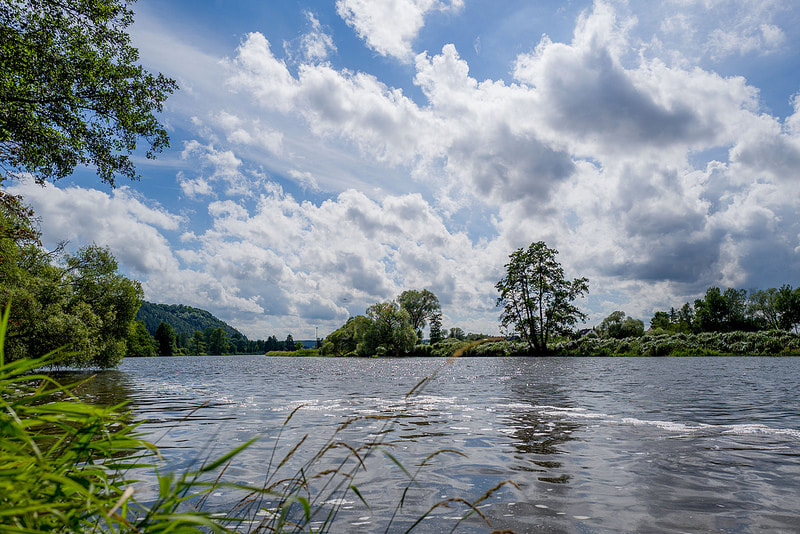Iqbal, Whitehead, and Islam
A Short Note
Farhan Shah, Muslim philosopher

Many Muslims today are trapped between two realities: a rising tide of Islamophobia on the one hand, and a stagnant, overly rule-based version of Islam that curbs freedom of thought and creativity on the other. The Islam they know and love is not militant Islam nor is it the stagnant, legalistic version too often promulgated by conventional clerics. It is something more dynamic and alive: an ongoing process of living in the world with a respect for each and every human being in a humble way and also living with respect and care for the entire community of life.
It is also an Islam that is prospective. Islam is not reducible to the achievements of the past; instead it arrives in the human imagination as an invitation to creativity: that is, to realize the deepest potentials for fulfillment that are part of the human endowment. Muslims who feel the promise of this humanistic and ecological Islam believe that that they have the Qur’an on their side. The Qur’an itself, when freed from the shackles of sterile, atomistic and ideological interpretation, points toward an emancipating view of human potential that is respectful of the dignity of each and every perspective, awed by the beauty of the natural world, and encouraging of an “integral ecology” that lives with respect and care for all life, human and non-human.
In support of this vision, and as a result of environments shadowed by fear and suspicion, a growing number of Muslims are turning to the writings of the “spiritual father” of modern Pakistan, Muhammad Iqbal (1877-1938). He was a philosopher, Quranic scholar, jurist, social reformer, educationist and didactic philosophical-poet who, as it happens, was also an informal student of Alfred North Whitehead (1861-1947), agreeing with Whitehead that the very energy of the universe, found in human life and nature, is creative. For Iqbal as for Whitehead, God works with, not against, this creativity.
Of course for Iqbal as for Whitehead there is more to God than this working with creativity. There is also an aspect of God which is timeless or permanent. Whitehead speaks of it as the primordial nature of God and proposes that it contains an infinity of pure potentialities (eternal objects) that can be actualized in the ongoing history of the universe. They are potentialities for connectedness and subjective feeling. Relative to given historical situations on Earth, some are relevant and some are not.
According to Iqbal, as the potentialities for connection that are relevant to life on Earth are actualized by human beings, there emerges in human life a deep respect for the ontological dignity of every member of the human species, and also a deep sense of interdependence with the planet Earth, understood as a sacred ground. These are the particular potentialities toward which we are lured by God, relative to our particular social and historical circumstances. They are also those which help us realize our creative potential as human beings with agency, and helps us to fulfill our planetary errand, to love and serve God by loving and serving God`s creatures.
Thus we discern two ways that a creative Islam will unfold: One way invites Muslims to reclaim the idea that the purpose of Islam is to participate in eternal potentialities residing in the organic whole of Allah which lead to gentleness of soul and humane, sustainable community, with the earth understood as a “primordial mosque”. The other invites Muslims to respond to a call from the future, the call of Allah, as it beckons Muslims to realize their creative potential for adding beauty to the world, respectful of the dignity and ontological equality of each person and adding novelty to the world. We might call these, respectively, archetypal Islam and onward-looking Islam.
Muhammad Iqbal is important, among many other reasons, because, in his joint emphasis on permanence and change, he encourages both approaches. Permanence and change: that is one of his primary themes in his philosophical and poetical creations. Whitehead is important because he provides a conceptual context, complementary to Iqbal, which helps make sense of the idea that there are, after all, timeless potentialities in God’s mind (pure potentialities, eternal objects) and that God calls from the future (initial aims).
The call of God is to creatively participate in potentialities, some of which have been actualized in the past, in the best of tradition, and some of which are experienced in human life as novel possibilities never before realized. One of them, carrying aspects of both, is the possibility of creating communities generative of fresh loyalties which draw upon the psychological forces of love, honesty and mutual good-will, i.e., human organisations that are creative, relational, compassionate, participatory, multi-cultural, humane to animals, economically wise, good for the earth, with no one left behind.
While the thought-life of modernity has been shaped by extreme individualism, the actual life has been formed much more on the basis of the we/they divide. We are in fact social agents. For hundreds of thousands of years our ancestors lived in small groups that could survive only by strong social cohesion. Changing social structures partially shifted the understanding of “we” to larger groupings. Gender also plays a role universally. Later religion came to be an important factor in identifying the “we.” For modern Europeans, nations came to dominate the self-identification of most people.
Of course, the situation is more complex. Local communities, institutions or professions can be the basis of the we/they divide. Marxism focused on class, with the primary division between capitalists and workers. Today, the most important divide may be between the rich segments of the society and the rest of us.
The Enlightenment also supported a we/they division between human beings and the rest of the world. One could appeal to its principles to develop a Universalist humanism or a religion of humanity. Not long ago something that was called “scientific humanism” played a significant role in the intellectual community. However, this ideal had little effect when it became fully separate from the traditional faith that gave rise to it. The Enlightenment teachings in fact gave no reason to be concerned about strangers or people in other parts of the world. The modern empires had little hesitation to exploit the conquered. The deeper we/they feelings set the conquerors over against the conquered and provided little sense of their togetherness as a “we.” That any we/they ordering of human concerns is inherently destructive is obvious. As technology draws humanity more and more together, we need more and more to identify ourselves in a more inclusive way. Whitehead speaks of the need for world loyalty. A new civilization must order itself and its teachings so as to hold the inevitable we-they distinctions in check, always emphasizing the larger whole to which both we and they belong.
According to Iqbal, the rigid categorization of we and they naturally gives birth to the idea that humanity has been sharply fragmented, that it is inconceivable to produce real unity among human beings. For Iqbal, on the authority of the Quran, it is possible, even amidst international mutual conflicts and civil wars, to create communities of life in which “the self-invented distinctions and the superiority of complexes of the nations of the world are destroyed”, provided human beings relinquish their infinite avarice and the use of unilateral power for the sake of infinite gold-hunger, and transform the sacredness of humanity and the interdependency of all life into living actualities.
With help from Whitehead and Iqbal, we can speak of a kind of Islam that truly is constructively postmodernistic. The need is to transcend preoccupations with my calling to our calling as creatures among creatures on a small and beautiful planet. Part of the problem of individualism in the modern world lies in the assumption that callings are always individualized. They can be collective, too. We may live in Asia, Africa, Latin America, Europe, North America, or Oceania. We may be young, old, or in-between. We begin where we can begin, with the only day we have today: today. With the courage to challenge modern patterns of thought and being, there is hope. We call this hope an Islam of creativity.
It is also an Islam that is prospective. Islam is not reducible to the achievements of the past; instead it arrives in the human imagination as an invitation to creativity: that is, to realize the deepest potentials for fulfillment that are part of the human endowment. Muslims who feel the promise of this humanistic and ecological Islam believe that that they have the Qur’an on their side. The Qur’an itself, when freed from the shackles of sterile, atomistic and ideological interpretation, points toward an emancipating view of human potential that is respectful of the dignity of each and every perspective, awed by the beauty of the natural world, and encouraging of an “integral ecology” that lives with respect and care for all life, human and non-human.
In support of this vision, and as a result of environments shadowed by fear and suspicion, a growing number of Muslims are turning to the writings of the “spiritual father” of modern Pakistan, Muhammad Iqbal (1877-1938). He was a philosopher, Quranic scholar, jurist, social reformer, educationist and didactic philosophical-poet who, as it happens, was also an informal student of Alfred North Whitehead (1861-1947), agreeing with Whitehead that the very energy of the universe, found in human life and nature, is creative. For Iqbal as for Whitehead, God works with, not against, this creativity.
Of course for Iqbal as for Whitehead there is more to God than this working with creativity. There is also an aspect of God which is timeless or permanent. Whitehead speaks of it as the primordial nature of God and proposes that it contains an infinity of pure potentialities (eternal objects) that can be actualized in the ongoing history of the universe. They are potentialities for connectedness and subjective feeling. Relative to given historical situations on Earth, some are relevant and some are not.
According to Iqbal, as the potentialities for connection that are relevant to life on Earth are actualized by human beings, there emerges in human life a deep respect for the ontological dignity of every member of the human species, and also a deep sense of interdependence with the planet Earth, understood as a sacred ground. These are the particular potentialities toward which we are lured by God, relative to our particular social and historical circumstances. They are also those which help us realize our creative potential as human beings with agency, and helps us to fulfill our planetary errand, to love and serve God by loving and serving God`s creatures.
Thus we discern two ways that a creative Islam will unfold: One way invites Muslims to reclaim the idea that the purpose of Islam is to participate in eternal potentialities residing in the organic whole of Allah which lead to gentleness of soul and humane, sustainable community, with the earth understood as a “primordial mosque”. The other invites Muslims to respond to a call from the future, the call of Allah, as it beckons Muslims to realize their creative potential for adding beauty to the world, respectful of the dignity and ontological equality of each person and adding novelty to the world. We might call these, respectively, archetypal Islam and onward-looking Islam.
Muhammad Iqbal is important, among many other reasons, because, in his joint emphasis on permanence and change, he encourages both approaches. Permanence and change: that is one of his primary themes in his philosophical and poetical creations. Whitehead is important because he provides a conceptual context, complementary to Iqbal, which helps make sense of the idea that there are, after all, timeless potentialities in God’s mind (pure potentialities, eternal objects) and that God calls from the future (initial aims).
The call of God is to creatively participate in potentialities, some of which have been actualized in the past, in the best of tradition, and some of which are experienced in human life as novel possibilities never before realized. One of them, carrying aspects of both, is the possibility of creating communities generative of fresh loyalties which draw upon the psychological forces of love, honesty and mutual good-will, i.e., human organisations that are creative, relational, compassionate, participatory, multi-cultural, humane to animals, economically wise, good for the earth, with no one left behind.
While the thought-life of modernity has been shaped by extreme individualism, the actual life has been formed much more on the basis of the we/they divide. We are in fact social agents. For hundreds of thousands of years our ancestors lived in small groups that could survive only by strong social cohesion. Changing social structures partially shifted the understanding of “we” to larger groupings. Gender also plays a role universally. Later religion came to be an important factor in identifying the “we.” For modern Europeans, nations came to dominate the self-identification of most people.
Of course, the situation is more complex. Local communities, institutions or professions can be the basis of the we/they divide. Marxism focused on class, with the primary division between capitalists and workers. Today, the most important divide may be between the rich segments of the society and the rest of us.
The Enlightenment also supported a we/they division between human beings and the rest of the world. One could appeal to its principles to develop a Universalist humanism or a religion of humanity. Not long ago something that was called “scientific humanism” played a significant role in the intellectual community. However, this ideal had little effect when it became fully separate from the traditional faith that gave rise to it. The Enlightenment teachings in fact gave no reason to be concerned about strangers or people in other parts of the world. The modern empires had little hesitation to exploit the conquered. The deeper we/they feelings set the conquerors over against the conquered and provided little sense of their togetherness as a “we.” That any we/they ordering of human concerns is inherently destructive is obvious. As technology draws humanity more and more together, we need more and more to identify ourselves in a more inclusive way. Whitehead speaks of the need for world loyalty. A new civilization must order itself and its teachings so as to hold the inevitable we-they distinctions in check, always emphasizing the larger whole to which both we and they belong.
According to Iqbal, the rigid categorization of we and they naturally gives birth to the idea that humanity has been sharply fragmented, that it is inconceivable to produce real unity among human beings. For Iqbal, on the authority of the Quran, it is possible, even amidst international mutual conflicts and civil wars, to create communities of life in which “the self-invented distinctions and the superiority of complexes of the nations of the world are destroyed”, provided human beings relinquish their infinite avarice and the use of unilateral power for the sake of infinite gold-hunger, and transform the sacredness of humanity and the interdependency of all life into living actualities.
With help from Whitehead and Iqbal, we can speak of a kind of Islam that truly is constructively postmodernistic. The need is to transcend preoccupations with my calling to our calling as creatures among creatures on a small and beautiful planet. Part of the problem of individualism in the modern world lies in the assumption that callings are always individualized. They can be collective, too. We may live in Asia, Africa, Latin America, Europe, North America, or Oceania. We may be young, old, or in-between. We begin where we can begin, with the only day we have today: today. With the courage to challenge modern patterns of thought and being, there is hope. We call this hope an Islam of creativity.

